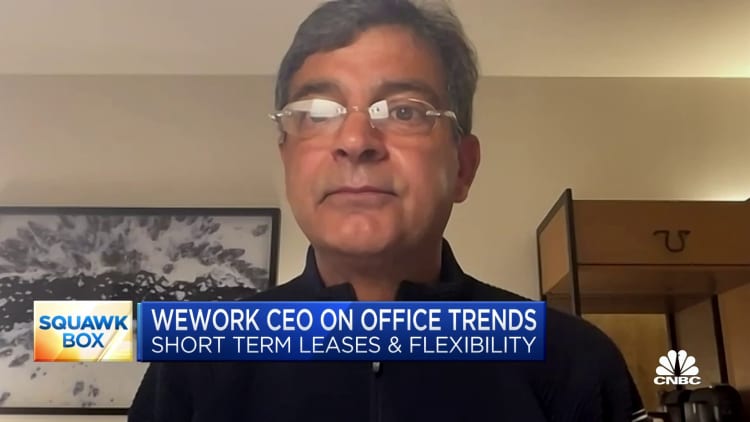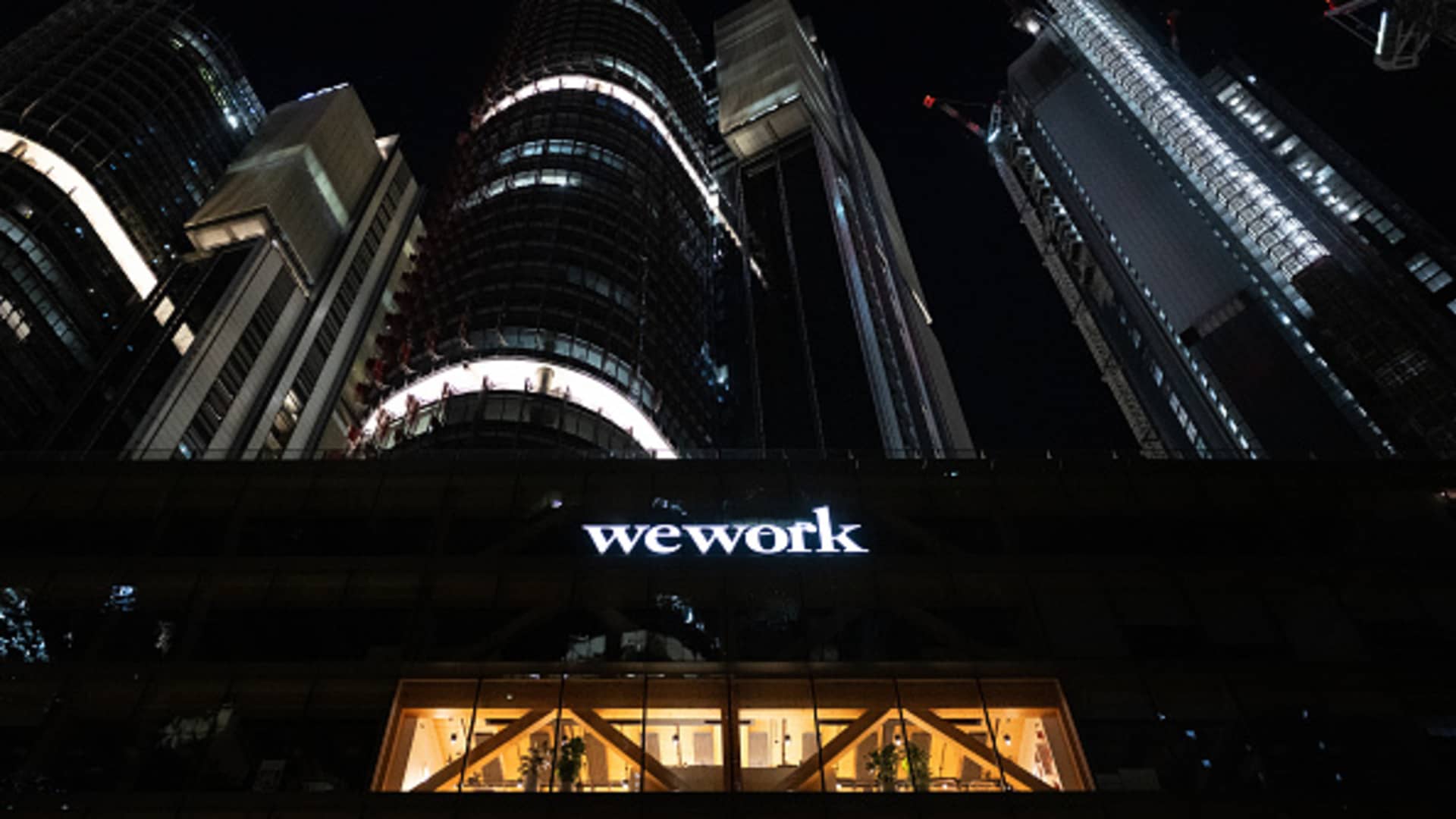On July 29, 2023, in Sydney, Australia, the illuminated logo of “Wework,” a company known for offering office and coworking spaces to self-employed individuals and businesses, stands out among the city’s skyscrapers.
By Sebastian Christoph Gollnow | Picture Alliance | Getty Images
Four years ago, WeWork was gearing up for a highly anticipated IPO. Fast forward to today, and the company is now facing the possibility of bankruptcy.
In a filing with the SEC on Tuesday, WeWork expressed concern about its mounting losses and negative cash flows, which cast doubt on the company’s ability to continue as a going concern.
The decline of a company once valued at $40 billion by SoftBank has been a long time in the making. However, it is still surprising considering the widespread presence of WeWork in commercial buildings around the world. The combination of the Covid-19 pandemic, which prompted many businesses to exit their leases in favor of remote work, and the subsequent economic downturn, has left WeWork burdened with debt and struggling to generate cash.
The company stated, “If we do not succeed in improving our liquidity position and operational profitability, we may need to explore all strategic alternatives, including debt restructuring or refinancing, seeking additional capital, reducing or delaying business activities and strategic initiatives, selling assets, pursuing other strategic transactions, and potentially seeking relief under the U.S. Bankruptcy Code.”
WeWork’s stock has been trading below $1 since March, and it experienced a further decline of 26% to 15 cents in extended trading on Tuesday. Its market cap is now less than $500 million.
In the first half of this year, the company incurred a net loss of $700 million, following a loss of $2.3 billion in 2022. As of June 30, it had $205 million in cash and equivalents and total liquidity of $680 million. It also had $2.91 billion in long-term debt.
In 2019, WeWork initially planned to go public but faced significant criticism due to excessive spending and risks detailed in its prospectus, as well as concerns about founder Adam Neumann’s complex relationship with the company. The IPO was ultimately shelved, and SoftBank assumed majority control of WeWork through a $5 billion financing package, resulting in Neumann’s forced departure.
In 2021, WeWork finally went public through a merger with a special purpose acquisition company (SPAC). However, the company continued to face challenges. WeWork reported a modest 3.6% year-over-year revenue growth in the second quarter, and sales in the U.S., which account for 41% of its revenue, declined by 4%.
WeWork attributed these declines to the economic conditions that led to member departures, which in turn affected revenue and cash flow. Even SoftBank reduced its investment in WeWork, contributing only $6 million in revenue during the second quarter of this year, compared to $10 million in the same quarter of 2022.
Critical factors that will determine WeWork’s future as a going concern include limiting capital expenditures, increasing revenue, and exploring debt or equity issuances for additional capital.
Last week, three board members resigned due to disagreements regarding board governance and the company’s strategic direction. Among them was Daniel Hurwitz, who had served as chairman since May.
WeWork is actively searching for a permanent leader following the departure of CEO Sandeep Mathrani. The company announced in May that Mathrani would step down, with former Intelsat finance chief David Tolley serving as interim CEO.
Last year, the rise and fall of WeWork became the subject of the miniseries “WeCrashed” on Apple TV+.
WATCH: WeWork CEO Sandeep Mathrani: Today’s occupiers are looking for turnkey solutions

Denial of responsibility! VigourTimes is an automatic aggregator of Global media. In each content, the hyperlink to the primary source is specified. All trademarks belong to their rightful owners, and all materials to their authors. For any complaint, please reach us at – [email protected]. We will take necessary action within 24 hours.


